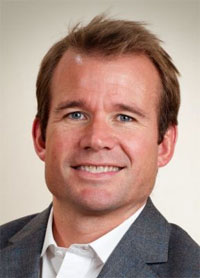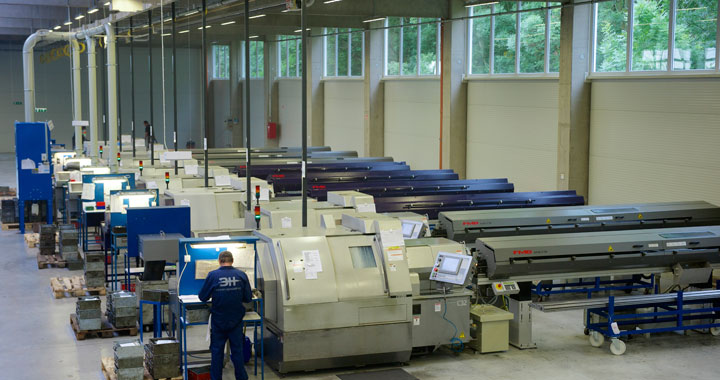"The driver of development is investing in people": Interview with Jim Doherty in Autopro.hu
10 September 2013
Doherty Hungary CEO Jim Doherty, speaks to autopro.hu, on how he came and invested in Hungary and why he likes it so much here.
AP: Why did you decide to start an enterprise in Hungary and why did you choose Orosháza?
J. D.: Earlier on, our company operated in the Midlands, a highly developed industrial region in the United Kingdom. One of our largest customers, Siemens, relocated its production from Würzburg, Germany, to Slovakia and they expected us to supply them from the Central European region. We were looking for a suitable location for a long time and we made enquiries in several countries.
However, we already had an active relationship with Orosháza, as we were already suppliers to a company there. They agreed to give us support on the condition that we move to the same city. This is how we started operation in 1998 with a staff of ten. Also, we made the right decision because Orosháza is quite easy to pronounce for our Western European partners, as opposed some other Hungarian town names.

On the other hand, this decision might not seem to be the best, as for example there are more suitable locations from the aspect of logistics.
Although this is partly true, the motorway is close enough to us, and I have to say that Hungary has the one of the best logistical conditions in Europe. And when we reach the motorway, we can travel to Budapest in only an hour, and then to whichever direction we need to go, to Germany or towards the East. Compared to the British road network, we can get anywhere quite freely and directly.
You started your enterprise in Hungary 15 years ago and in 2007, you also followed your company to Hungary along with your family. Was it a difficult decision to make?
We had been considering it for a while that we would move here. The business did not go as we had expected it and we had to make changes in the management. We still believed that this region had a lot of potential, although we were not completely sure. However, the conditions were good and our major customers were ready to develop here together with us. So we said "let's do it".
It seems you did not regret your decision. How has it been working out for you?
I like Hungary a lot, it is a nice, friendly place, we have a lot to do here and my family is also happy.
It is glad to hear that you like to be here.
It is probably more than just ‘like’: it is a fantastic country.
Obviously, it must be very different doing business here than in your home country. What are the most important differences, advantages and disadvantages?
Great Britain has centuries of history in trading and business, we have strong traditions in this field. In Hungary I can see that this nation also has valuable knowledge: there are well-trained professionals, who speak several languages and embody a very good combination of openness towards learning and intelligent thinking.
But it needs to develop commercially and understand that the customer is king. I regularly talk to managers of other companies operating in our immediate region, and what I see is that they are all experienced professionals in their respective fields. I cannot really tell you any disadvantages, only an opportunity for improvement.
Doherty Hungary's new, 2,000-square-metre production hall was handed over in the spring of 2013, which represented a huge step forward in the life of the company. What are your plans for the future?
In 2012, we registered a turnover of 7 million EUR, and today we have 150 employees. Why couldn't we double these results in the next few years? I believe we have the opportunities and we are capable of achieving it. The land area is available for additional development, we have an excellent professional background and sufficient technical support and we are located where our customers want us to be.
Obviously, we cannot hire people who are skilled in each of our processes or who immediately understand our corporate culture and our operation: we have to train our colleagues from a young age. We can see the opportunity for continuous growth of our company, and we will do everything we can to make further improvements.
What kind of automotive customers do you supply with automotive parts, which models have your components built in?
Our major customers include Bosch, Brose and TRW. It would take some time to list all the models we are supplying for, but here are a few examples: Volkswagen Up, Ford Fiesta, Renault Clio, Mercedes S-Class, Porsche 911, BMW X5 etc.
As a supplier arriving in Hungary from abroad, what is your opinion on the Hungarian automotive industry and the possibilities of this branch?
Thank you for the question, this is an extremely important issue. There is something that I do not really understand. Hungary is mainly engaged in parts manufacturing, and domestic companies primarily produce for the German automotive industry. Shafts, steering systems and components for heavy-duty vehicles are made in Hungary. What I cannot see, however, is the segment of medium-sized enterprises. Everyone is talking about the OEMs, Audi, Mercedes-Benz, Suzuki and Opel.
But where are the players from the middle of the story? The majority of products made by Hungarian companies leave the country. We, for example, only have one customer from Hungary, 85 percent of the time we produce for export. Besides Germany, we also have customers from Slovakia, Portugal, Great Britain and Russia. I believe that Hungary needs much more medium-sized automotive companies engaged in pre-assembly and complete parts production.
Read Full Interview Click here




